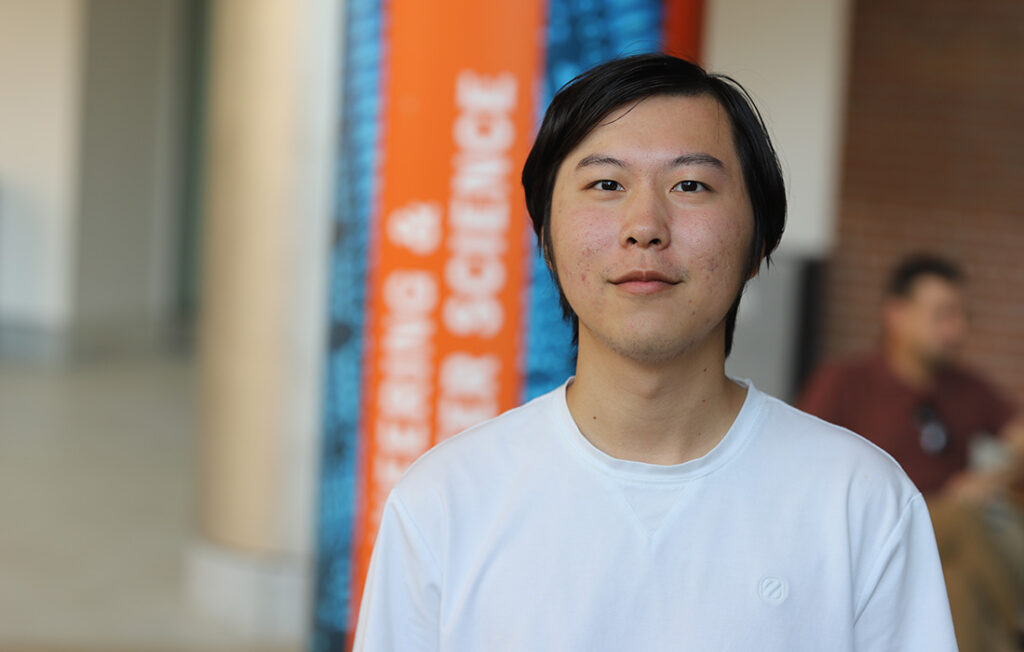
In just one year, computer science Ph.D. student Siwei Zhang has made outstanding achievements in research. Advised by electrical engineering and computer science (EECS) professor Endadul Hoque, Zhang has been involved in multiple projects, presented research at conferences, and published a paper, contributing significantly to the cybersecurity research field.
Joining the EECS master’s program in the fall of 2023, Zhang worked with Hoque on developing fuzzing methods. In cybersecurity, fuzzing is a security testing technique that uses an automated approach to find vulnerabilities and bugs in computer programs. “I’ve always had an interest in operating systems, and I find research interesting. In my spare time, I use new tools to find bugs in systems. Finding vulnerabilities in programs is the goal of my research.”
Zhang presented his work on fuzzing methods in operating systems at the 2024 USENIX Conference. This prestigious conference brings together researchers and practitioners in the cybersecurity field, and Zhang’s research caught the attention of several attendees. “People are interested in this area of research,” Zhang says. “It’s going to be the future.”
As a Ph.D. student, Zhang has authored and published a paper that focuses on enhancing the security of smart homes. He presented the paper at the Institute of Electrical and Electronics Engineers (IEEE) Secure Development (SecDev) 2024, a conference where academic and industry researchers present and discuss state-of-the-art techniques for developing secure computer systems.
“As a first-year Ph.D. student, Siwei has made remarkable progress in academics and research, including leading multiple projects,” Hoque says. “He excels at system-level programming and quickly grasps complex problems. As a master’s student in my group, he developed an open-source gateway for large language models (LLMs)—advanced AI systems trained to understand and generate human language—which streamlines integration with both open and closed-source models. This tool has greatly supported our research. With his skills and enthusiasm, he shows strong potential to become a leading cybersecurity researcher, and I’m pleased to have him in our Ph.D. group.”
